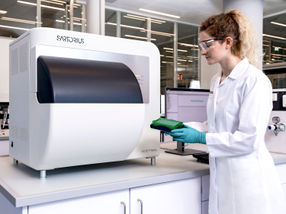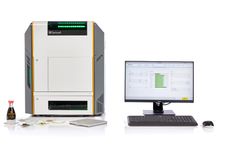Octet RH16 and RH96
Efficient protein analysis for process optimisation and manufacturing control in high-throughput
Sartorius AG

Whether for development, production or quality control, label-free Bio-Layer Interferometry (BLI) assays allow you to analyze proteins quickly and easily. The fully automated BLI systems Octet RH16 and RH96 are specifically designed for high throughput performance especially when combined with autosamplers or robotics.
Up to 96 samples in parallel or binding specificity studies on 96 different targets - apply the sensitive biosensors as required. Measurements can be performed directly in complex unpurified mixtures, such as cell culture supernatants or serum-containing media.
The microfluidic-free fiber-optic design speeds up assay development, minimizes sample preparation requirements and reduces maintenance costs thanks to sensor tips that can be changed easily and cost-effectively. After the measurement, the samples are available for further process steps or analyses. This saves valuable sample material, especially in early development phases.
The ideal replacement for ELISA and HPLC assays for the quantification of antibodies and recombinant proteins.
Request information about Octet RH16 and RH96 now

Protein analyzers: Octet RH16 and RH96
Efficient protein analysis for process optimisation and manufacturing control in high-throughput
Product classification Octet RH16 and RH96
Product categories
Applications
Find more protein analyzers and related products
Find Octet RH16 and RH96 and related products in the theme worlds
Topic world Protein analytics
Protein analytics provides a deep insight into these complex macromolecules, their structure, function and interactions. It is essential for discovering and developing biopharmaceuticals, understanding disease mechanisms, and identifying therapeutic targets. Techniques such as mass spectrometry, Western blot and immunoassays allow researchers to characterize proteins at the molecular level, determine their concentration and identify possible modifications.

Topic world Protein analytics
Protein analytics provides a deep insight into these complex macromolecules, their structure, function and interactions. It is essential for discovering and developing biopharmaceuticals, understanding disease mechanisms, and identifying therapeutic targets. Techniques such as mass spectrometry, Western blot and immunoassays allow researchers to characterize proteins at the molecular level, determine their concentration and identify possible modifications.


